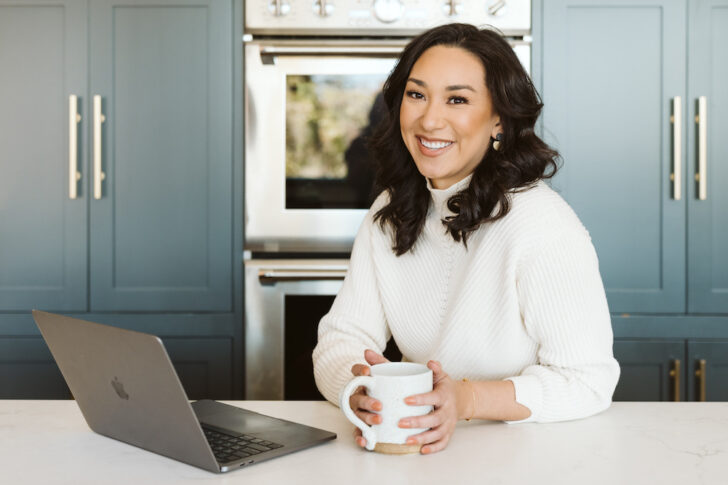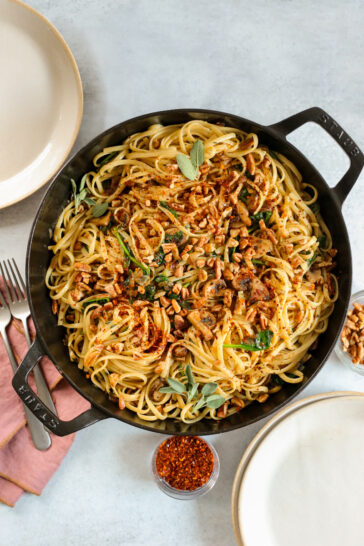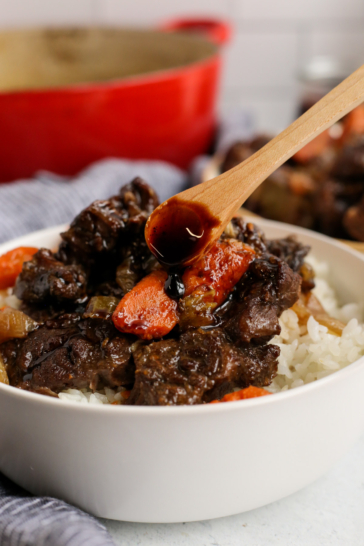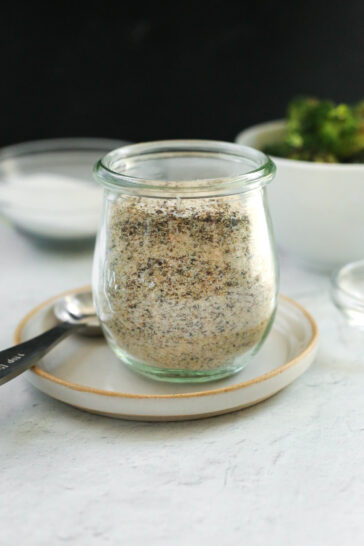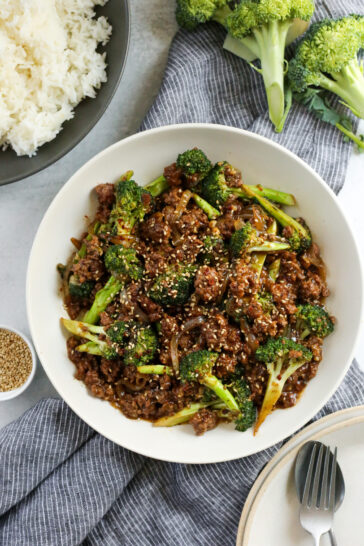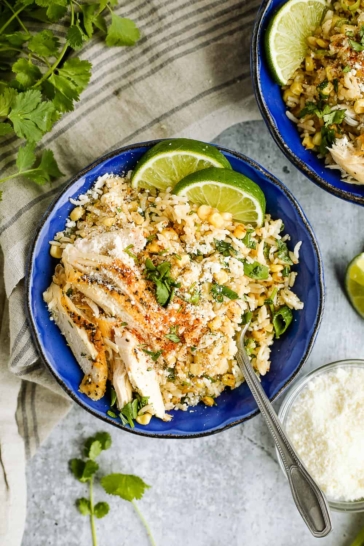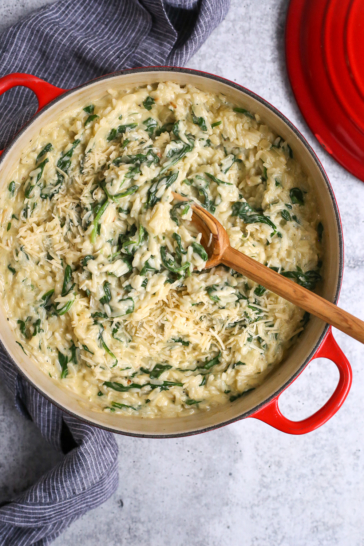If you’re struggling with body image and body acceptance during quarantine, you’re not alone. But it may not actually be about your body – here are three reasons why you might feel more uncomfortable than pre-pandemic.
Just as we’re not immune to a novel virus, we’re not immune to the pressures of keeping up appearances during quarantine.
Diet culture is in the air we breathe. Confined to our homes and left to our own coping mechanisms, many of us are struggling to accept our bodies. If your anxiety is building with each passing day, know you’re not alone.
But also know that your struggles with body image during quarantine may actually have little to do with your body. These could be some of the other factors contributing to your heightened awareness of feeling uncomfortable in your body right now.
1. You miss having control of your life
Let’s face it. Control is an illusion. But it’s one we grew accustomed to pre-pandemic.
Diet culture makes us falsely believe that if we work hard, eat right, adopt the “healthy” habits touted by wellness gurus and influencers, we can achieve and maintain good health. Health equals safety, especially in the face of a virus we have no immunity to.
Combine that with social distancing, limits on what you can purchase (or find), and suddenly being forced to juggle the roles of employee, parent, teacher, caregiver, and more — yeah, it’s not your fault if you feel like any semblance of control has been snatched away from you. It sucks to feel like you can’t live out your values, so we seek control from other places.
But even in “normal” times, we don’t have complete control over our bodies.
We want to think our lifestyle shapes the way we look but that’s largely determined by genetics. We want to believe if we stay ahead of the “calories in, calories out” equation we don’t gain weight, but it’s not that simple. We want to display our accomplishments through our appearance as the social proof we’re doing it “right” but that’s an unfair standard to measure everyone against.
Which leads us to this next one.
2. You believe the way your body looks says something about you
Since we live in a society where “fat” is one of the worst insults to sling, we feel a deep sense of shame when it comes to the shape and size of our bodies. On the flip side, we feel a great sense of pride if we sculpt and tone our bodies to more closely match the impossible beauty standard set for us.
If we look the part, never mind the toll to our mental and emotional health, we project confidence. We believe we’re somehow more worthy of love, acceptance, and praise. We’re so deeply conditioned to pursue this thin ideal that some of us can’t fathom a world where health is not dependent on a physical transformation. This narrative is reinforced every time we see a commentary on Adele’s post-divorce body and every time celebrity trainers use their platforms to remind us we can’t possibly improve health until we shrink ourselves. It doesn’t help that #Quarantine15 jokes are splashed across social media and radio or TV ads can’t seem to stop talking about it.
It’s also driven by fear. We know and understand the terrible ways fat bodies are stigmatized and discriminated against. We want to avoid this at all costs. We worry we’ll be judged and shamed when we emerge from quarantine so we feel like we need to scheme up a way to maintain or improve our current body.
That’s why the allure of diets is so powerful even when you’ve personally experienced how they fail you time and time again. Even when you know restricting nutrition, overexercising in your stressed-out body, and sacrificing peace of mind is not going to benefit your health in significant ways.
Take time to identify and question the beliefs you hold about bodies and health. Ask yourself about the interpretations you draw from someone’s appearance — including your own.
Once you identify some of those beliefs, it’s time to get curious and challenge them. Are these beliefs true? Do you want to keep believing them?
3. You get too many conflicting messages about health
What does “health” mean to you? If you tune out all the external noise from the media, self-help books, documentaries, unsolicited advice from friends and family…what does it really look like for you to thrive?
We often forget there is more to health than just physical wellbeing. I typically reference a model that includes seven dimensions of wellness: physical, social, spiritual, vocational (or financial), emotional, intellectual, and environmental.
If you expand your definition of health to include these other dimensions, but the messages you consume fixate on only one or two, there will inevitably be some tension and second-guessing.
Maybe you’re listening to the wrong people. Check their credentials and interrogate their authority. Just because someone has 100,000 followers on Instagram doesn’t mean the advice their share is practical, realistic, or even safe. Sure, someone might be a doctor, but medical bias is very real and there is a long history of fatphobia and flawed science backing up the standard “best practices”.
Try zooming out just a little bit. Remember this is temporary and our situation will change. For better? For worse? We aren’t sure, and that’s deeply unsettling to contend with. We desperately want to believe if we just stay fit enough, thin enough, well enough, then this virus will pass us over for someone else.
Unfortunately, we’re seeing that just isn’t the case. When in doubt, log out of social media, turn off your screens, and recenter yourself around what you need in this moment to take of your body. Not your future body or the one from the past you crave a return to. I’m talking about your current body. Right here, right now, just the way it is.
Make Self-Care the Priority
In the book “Essentialism: The Disciplined Pursuit of Less”, author Greg McKeown traces the history of “priorities”. Until the 1900s, there was only the singular “priority” to mean “the very first thing.” For roughly 500 years, people could focus on one, and only, one thing before moving onto the next.
Along came the industrial revolution, and suddenly the noun merged to the plural “priorities”. That’s usually how we use it today, referring to the multiple important things we must accomplish.
Becoming an essentialist requires a level of privilege and affluence many of us don’t have. But I think we can still learn from McKeown’s teachings and recognize that unless we “protect the asset”, as he describes in later chapters, we will continue to sacrifice our well-being in the pursuit of other seemingly important things.
Don’t get me wrong. It is important to care for and support your children while they learn from home. It is important to allow space for your partner or spouse to work, vent, or process their own baggage. It is important to do what you need to do to ensure you stay as safe and protected as possible, financially, physically, and otherwise.
But it is also important for you to take care of yourself. Even if that looks different than it once did.
If you’re struggling with body image during quarantine, please understand that it isn’t about your body. It’s your brain’s attempt to return to a familiar pattern of known outcomes in a landscape of a million unknowns.
As Ijeoma Oluo wrote in a recent article on Medium, “…If suddenly you feel at war with your body, if suddenly you feel like you must remake your body, if you suddenly feel like your body is a scary place to be: I hope you might hold space for the truth that all your body wants from you is for you to live in it and that your body is working every day to make that happen.”
You may not have the community and support you need right now. Your lifeline of self-care tools might have been clamped down along with our cities.
But trust your body.
Know that it’s not letting you down, it’s helping you survive. If it needs to change in shape or size to let that happen, how can it be wrong?
For more reading on coping with body image struggles during quarantine, check out my post about Gentle Nutrition for Stress and Anxiety.
